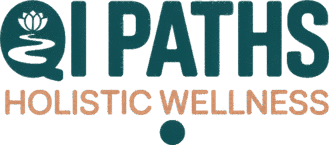Understanding Traditional Chinese Medicine

Are you seeking a holistic approach to health that resonates with ancient wisdom? Traditional Chinese Medicine (TCM) offers a profound understanding of wellness that transcends simple symptom management, integrating the mind, body, and spirit.
What You Will Learn
- Holistic Health Approach: TCM emphasizes the interconnectedness of the physical, emotional, and spiritual aspects of health.
- Preventive Care Focus: The system promotes lifestyle changes to maintain health and prevent illness before it arises.
- Yin-Yang Balance: Understanding and cultivating balance between Yin and Yang energies is essential for physical and emotional well-being.
- Five-Phase Theory: This framework connects the five elements—Wood, Fire, Earth, Metal, Water—to our organs and emotions for a comprehensive health perspective.
- Meridian System: Recognizing the energy pathways in the body helps maintain the flow of Qi, the vital life force, enhancing overall health.
- Individualized Diagnosis: TCM tailors treatment strategies based on each person's unique body constitution, emotional state, and environmental influences.
- Emotional Wellness: The mind-body connection is integral, with emotional health playing a critical role in physical wellness.
- Variety of Treatment Modalities: TCM includes acupuncture, herbal medicine, and practices like Qigong and Tuina, each offering unique pathways to healing.
- Integration with Modern Healthcare: TCM is increasingly recognized in Western medicine, with research supporting its efficacy and potential for complementary use.
- Debunking Myths: Understanding common misconceptions about TCM helps in embracing its practices without prejudice.
Key Concepts in Traditional Chinese Medicine
This visual presentation highlights the fundamental principles of Traditional Chinese Medicine (TCM), focusing on Holistic Health, Preventive Care, and the Yin-Yang theory.
Holistic Health
TCM views the body as an integrated whole, where physical, emotional, and spiritual dimensions are interconnected. Achieving balance among these aspects is key to overall health.
Preventive Care
Emphasizing lifestyle changes and preventive measures, TCM aims to keep individuals healthy before they fall ill, thus reducing the risk of disease.
Yin-Yang Theory
The balance of Yin (dark, passive) and Yang (light, active) energies is essential for maintaining good health. Imbalance can lead to health issues.
Five-Phase Theory
This theory links five elements (Wood, Fire, Earth, Metal, Water) to different organs and emotions, guiding diagnosis and treatment in TCM.
Understanding the Essence of Traditional Chinese Medicine
Have you ever wondered what makes Traditional Chinese Medicine (TCM) so unique? At Qi Paths, we believe that TCM is more than just a set of treatments; it's a comprehensive system that promotes holistic health by considering the mind, body, and spirit as interconnected. The significance of TCM lies in its ability to address not just symptoms, but the root causes of health issues, paving the way for long-lasting wellness.
By exploring the rich traditions of TCM, we can uncover valuable insights into how ancient practices can enhance our modern lives. This approach is all about balance, harmony, and understanding the natural rhythms of our bodies. Let’s dive deeper into the foundational aspects of this profound healing art!
A Comprehensive Overview of Traditional Chinese Medicine
At its core, TCM is a healing system that's been developed over thousands of years, rooted in the belief that good health is a balance of various elements. It encompasses a variety of practices, including acupuncture, herbal medicine, and dietary therapy. These methods work together to restore harmony and promote overall well-being. The State Council Information Office of the People's Republic of China provides official perspectives and policy insights on the development and promotion of traditional Chinese medicine.
Some key components of TCM include:
- Holistic Health: TCM views the body as an integrated whole, where physical, emotional, and spiritual dimensions are interconnected.
- Preventive Care: Emphasizing lifestyle changes and preventive measures, TCM aims to keep individuals healthy before they fall ill.
- Diagnostic Techniques: TCM practitioners use various methods, such as tongue and pulse diagnosis, to assess a person's health.
Through this comprehensive approach, TCM nurtures a deeper connection with our bodies, helping us to understand our unique needs.
Exploring the Philosophical Roots of TCM
The philosophical foundations of TCM are deeply intertwined with Taoist philosophy, which emphasizes the balance of opposites and the natural flow of energy, known as Qi. This perspective teaches us that health is achieved when our Qi flows smoothly throughout our bodies, promoting vitality and well-being.
One of the foundational texts of TCM, the Huangdi’s Internal Classic, highlights the importance of understanding the natural world and its influence on our health. This ancient manuscript serves as a guide, illustrating how aligning ourselves with nature can bring about healing. By integrating these teachings into our lives, we can cultivate a more harmonious existence. For further reading, the National Library of Medicine offers extensive resources on the history and theories of traditional Chinese medicine.
Core Principles and Theories in TCM
The Yin-Yang Theory and Its Impact on Health
Are you familiar with the concept of Yin and Yang? This theory is vital in TCM, representing the dualities that exist in everything around us. Yin is associated with qualities like darkness, cold, and passive energy, while Yang is linked to light, heat, and active energy. Achieving balance between these two forces is essential for maintaining good health.
In TCM, when Yin and Yang are in harmony, the body functions effectively. However, when one dominates the other, health issues can arise. By understanding this dynamic, we can better address our physical and emotional well-being. Some practical ways to cultivate this balance include:
- Mindful Eating: Choose foods that nourish both Yin and Yang energies.
- Balanced Lifestyle: Incorporate activities that promote relaxation (Yin) and exercise (Yang).
- Emotional Awareness: Acknowledge feelings and work towards emotional balance.
Ultimately, the Yin-Yang theory serves as a guiding principle for achieving harmony in our lives!
The Five-Phase Theory: Understanding the Elements
The Five-Phase theory, also known as the Five Elements (Wood, Fire, Earth, Metal, Water), offers a framework for understanding the relationships between various aspects of our existence. Each element corresponds to different organs, emotions, and seasons, providing a comprehensive view of how we interact with the world.
Here’s a brief overview of the Five Elements and their connections:
- Wood: Represents growth and creativity, associated with the liver and spring.
- Fire: Symbolizes passion and warmth, connected to the heart and summer.
- Earth: Relates to nurturing and stability, linked to the spleen and late summer.
- Metal: Reflects structure and clarity, associated with the lungs and autumn.
- Water: Embodies flow and adaptability, linked to the kidneys and winter.
By incorporating the Five-Phase theory into our understanding of health, we can diagnose and treat imbalances more effectively. This holistic perspective enriches our approach to wellness, encouraging us to foster harmony within ourselves and our environments.
Meridian Theory and Its Role in TCM
The meridian system is another fundamental concept in TCM, consisting of energy pathways that connect different parts of the body. These channels facilitate the flow of Qi, ensuring that our physical and emotional health is in balance. Blockages or disruptions in these meridians can lead to pain and illness.
To maintain a healthy flow of Qi, we can consider:
- Regular Acupuncture: This treatment targets specific points along the meridians to restore balance.
- Qigong Practices: Gentle movements and breathing techniques enhance the flow of energy.
- Self-Massage: Stimulating acupressure points can alleviate tension and improve circulation.
By understanding and nurturing our meridian systems, we can enhance our well-being and live our lives more fully!
Diagnostic Approaches in Traditional Chinese Medicine
Pattern Differentiation: The Foundation of TCM Diagnosis
Pattern differentiation, or Bianzheng Lunzhi, is a key diagnostic tool in TCM. This technique involves assessing various aspects of a patient’s condition to identify patterns of disharmony. By looking at symptoms, emotions, lifestyle factors, and even tongue and pulse characteristics, practitioners can create a comprehensive picture of one's health.
This holistic evaluation allows for customized treatment plans tailored to the individual’s unique needs. Some common patterns include:
- Qi Deficiency: Characterized by low energy and weakness.
- Blood Stagnation: Leading to pain and discomfort.
- Yin Deficiency: Resulting in dryness and overheating.
By understanding these patterns, we can pave the way for more effective treatment!
The Role of the Six Stages Theory in Diagnosis
The Six Stages theory provides another lens through which to view health conditions in TCM. This approach categorizes illnesses into stages, allowing practitioners to assess the progression of a disease. By understanding where a condition lies on this spectrum, practitioners can develop appropriate treatment strategies.
Some critical stages include:
- Exterior Stage: Symptoms like fever and chills.
- Interior Stage: Involves deeper issues affecting internal organs.
- Recovery Stage: Focuses on restoring balance and strength.
Utilizing the Six Stages theory enhances our understanding of health, guiding us toward effective intervention and healing.
Diagnosis in TCM: Understanding Body Constitution
Every individual has a unique body constitution, which refers to the inherent characteristics that influence health and wellness. In TCM, understanding your body type helps determine the most effective treatment approaches. Factors like constitution can include:
- Constitution Type: Such as Cold, Hot, Damp, or Dry.
- Emotional Tendencies: How emotions affect overall health.
- Response to Climate: Sensitivity to environmental changes.
By recognizing our body constitution, we can better align our health practices with our needs, promoting a more balanced and integrated approach to wellness!
Diverse Treatment Modalities within TCM
Acupuncture: Techniques and Benefits
One of the most well-known TCM practices is acupuncture. This technique involves inserting thin needles into specific points on the body to promote healing and balance. Many patients have experienced remarkable benefits, such as:
- Pain Relief: Reducing chronic pain and discomfort.
- Stress Reduction: Promoting relaxation and emotional well-being.
- Improved Digestion: Alleviating gastrointestinal issues.
Acupuncture is not just a treatment; it's a journey toward self-discovery and healing. Through this practice, we can reconnect with our bodies and cultivate a deeper understanding of our health.
Herbal Medicine: Safety and Efficacy
Herbal medicine is another cornerstone of TCM. Utilizing various plants and natural substances, practitioners create remedies tailored to each individual's needs. When used responsibly, herbal remedies can be both effective and safe. Here are some important aspects to consider:
- Preparation Methods: Different ways to extract the medicinal properties of herbs.
- Dosage: Importance of appropriate dosages for safety.
- Consultation: Always consult a qualified practitioner before starting any herbal treatment.
By approaching herbal medicine thoughtfully, we can harness the power of nature to support our health journey.
Traditional Chinese Herbal Formulas and Their Applications
In TCM, specific herbal formulas are often used to address various health conditions. These combinations are designed based on the individual’s unique diagnosis and may include:
- Gui Pi Tang: For energy and vitality.
- Xiao Feng San: To alleviate allergies and skin conditions.
- Sheng Mai San: For heart and lung health.
With the right formulas, TCM offers personalized solutions that resonate with our individual health needs!
Additional Treatment Practices: Moxibustion, Tuina, Qigong, and Taijiquan
Beyond acupuncture and herbal medicine, TCM encompasses a variety of other treatment modalities that contribute to holistic healing. Some of these practices include:
- Moxibustion: The burning of mugwort to invigorate Qi.
- Tuina: A form of therapeutic massage to promote balance.
- Qigong: A practice of gentle movements and breathing to enhance energy flow.
- Taijiquan: A form of martial arts promoting physical and mental harmony.
Incorporating these practices into our daily routines can significantly enhance our well-being and foster a deeper connection to our bodies.
Exploring Cupping Therapy and Its Benefits
Lastly, let’s not overlook cupping therapy, a fascinating practice that has gained popularity in recent years. By creating suction on the skin, cupping enhances blood flow and alleviates muscle tension. Some notable benefits of cupping therapy include:
- Pain Relief: Particularly effective for muscle and joint pain.
- Detoxification: Assisting the body in clearing toxins.
- Muscle Recovery: Speeding up recovery after physical activity.
As we explore the diverse treatments within TCM, it becomes clear that each modality offers a unique path toward health and wellness. Embracing these practices can lead to transformative experiences and deeper self-awareness!
The Integration of TCM in Modern Healthcare
Evidence-Based TCM: Clinical Trials and Research Insights
As TCM continues to evolve, it’s essential to bridge the gap between ancient practices and modern scientific validation. Research and clinical trials are shedding light on the effectiveness of TCM methods, paving the way for greater acceptance in mainstream healthcare. For reliable information on TCM and its integration into modern health, the National Center for Complementary and Integrative Health (NCCIH) provides valuable resources and research findings.
By embracing both traditional wisdom and modern science, we can foster a more holistic understanding of health and wellness!
Challenges and Opportunities for TCM in Western Medicine
While TCM holds immense potential, it also faces challenges in gaining recognition within Western medicine. Understanding these barriers can help us advocate for a more integrated approach to health. Some challenges include:
- Lack of Standardization: Variability in practices and formulations.
- Perception Issues: Misunderstandings about efficacy.
- Regulatory Hurdles: Navigating diverse healthcare systems.
Despite these obstacles, opportunities abound for TCM to complement modern medicine, enriching the healthcare landscape!
The Role of AI and Big Data in Advancing TCM
As technology advances, it’s exciting to consider how AI and big data can enhance TCM practices. These tools can provide valuable insights into patient data, improving diagnosis and treatment strategies. By harnessing technology, we can pave the way for a more personalized approach to healthcare!
Interactive Poll: Your Thoughts on TCM
As we explore the depths of Traditional Chinese Medicine, we want to hear from you! What aspect of TCM intrigues you the most? Share your thoughts below:
Adopting Personalized Medicine in TCM
When it comes to Traditional Chinese Medicine (TCM), *personalization* is key! Each individual is unique, and understanding this allows us to tailor TCM approaches specifically for your constitution and environment. This is not a one-size-fits-all scenario; instead, it’s about creating a healing journey that resonates with you personally, aligning with your body's needs and the world around you.
In my practice at Qi Paths, I emphasize the importance of individualized diagnosis. Whether you're dealing with stress, chronic pain, or digestive issues, I take the time to understand your specific circumstances. This includes evaluating not only your physical symptoms but also your emotional state and lifestyle factors. Every detail matters!
Individualized Diagnosis and Treatment Strategies
In tailoring TCM treatments, it's essential to consider several factors:
- Body Constitution: Each person's constitution influences how they respond to treatments.
- Emotional State: Your emotional well-being plays a crucial role in overall health.
- Environmental Influences: Factors like climate, lifestyle, and diet can affect your health.
- Personal Health History: Understanding past health issues helps guide treatment plans.
Using these insights, I can develop personalized strategies that may include acupuncture, herbal medicine, or lifestyle adjustments. This ensures you're not just treated for symptoms but rather supported holistically on your wellness journey.
Emotional Health in TCM: The Mind-Body Connection
In TCM, emotional health is closely linked to physical health. It’s fascinating how our emotions can manifest in physical symptoms! For example, stress can lead to headaches, while sadness may impact your energy levels. By addressing emotional well-being, we can promote a more balanced, healthy life.
Here are some ways TCM supports emotional health:
- Mindfulness Practices: Techniques like Qigong and meditation help ground your thoughts.
- Herbal Remedies: Certain herbs are known to soothe anxiety and uplift mood.
- Acupuncture: Targeting specific points can help release emotional blockages.
At Qi Paths, I focus on creating a safe space where we can explore these emotional connections together. It’s about understanding that you’re not just a collection of symptoms; you’re a *whole person* with a rich tapestry of experiences!
Addressing Common Questions and Misconceptions about TCM
As we delve into the world of TCM, many questions often arise. It's completely normal to have queries and uncertainties. I believe that understanding is crucial to embracing these ancient practices fully. Let’s clarify some common questions!
Frequently Asked Questions About Traditional Chinese Medicine
Here are some common questions to help you better understand Traditional Chinese Medicine:
- What is the core philosophy behind TCM?
- TCM is rooted in Taoist philosophy, emphasizing the balance of Yin and Yang energies and the smooth flow of Qi (vital life force) throughout the body to maintain health and prevent illness.
- What are the main diagnostic methods used in TCM?
- TCM practitioners use various diagnostic techniques, including pattern differentiation (Bianzheng Lunzhi), tongue diagnosis, pulse diagnosis, and understanding the patient's body constitution, emotional state, and environmental influences.
- What treatment modalities does TCM include?
- TCM encompasses a wide range of treatment modalities, such as acupuncture, herbal medicine (using traditional formulas), moxibustion, Tuina (therapeutic massage), Qigong, Taijiquan, and cupping therapy.
- Can TCM treatments be used alongside Western medicine?
- Yes, TCM is often used as a complementary therapy alongside conventional Western medicine. Many individuals find that integrating both approaches can offer comprehensive support for their health and well-being.
- Is TCM supported by modern scientific research?
- While TCM has ancient roots, modern research and clinical trials are increasingly exploring and validating the efficacy of various TCM practices, helping to bridge the gap between traditional wisdom and contemporary science.
Myths vs. Facts: Understanding TCM in Context
Unfortunately, there are many misconceptions about TCM that can lead to confusion. Let’s bust some of these myths!
- Myth: TCM is just about acupuncture.
Fact: TCM encompasses various practices, including herbal medicine, massage, and dietary therapy. - Myth: TCM is outdated and irrelevant.
Fact: TCM is supported by modern research and is increasingly integrated into holistic healthcare. - Myth: You must believe in TCM for it to work.
Fact: Many patients experience benefits regardless of their prior beliefs.
At Qi Paths, I strive to clarify these misconceptions and provide factual information. This knowledge empowers you to make informed decisions about your health journey!
Conclusion and Call to Action for Embracing TCM
As we wrap up this exploration, it’s clear that Traditional Chinese Medicine offers a wealth of benefits for those seeking holistic health solutions. It’s not just about treating symptoms; it’s about fostering a deep connection to your well-being.
Summarizing the Benefits of Traditional Chinese Medicine
In summary, TCM provides a comprehensive approach to health that includes:
- Individualized treatment plans tailored to your unique needs.
- A strong emphasis on the mind-body connection.
- A variety of treatment modalities, including acupuncture and herbal medicine.
- Support for emotional health alongside physical healing.
These elements form the core of what makes TCM a compelling path to wellness.
Your Journey Towards Wellness with TCM
I encourage you to explore the possibilities within TCM. Whether you’re a newcomer or have some experience, taking that first step can lead to profound changes. At Qi Paths, I’m here to support you on this journey, guiding you through personalized approaches that resonate with you. Let’s embrace the wisdom of TCM together!
Recap of Key Points
Here is a quick recap of the important points discussed in the article:
- Holistic Approach: TCM promotes a comprehensive system of health that integrates mind, body, and spirit.
- Preventive Care: Emphasizes lifestyle changes to maintain health before symptoms arise.
- Yin-Yang Balance: Achieving harmony between Yin and Yang is essential for overall well-being.
- Five-Phase Theory: Understanding the Five Elements aids in diagnosing and treating health imbalances.
- Meridian System: Maintaining the flow of Qi through meridians is crucial for physical and emotional health.
- Individualized Diagnosis: Tailoring TCM approaches based on unique body constitution and emotional state enhances treatment effectiveness.
- Integration with Modern Medicine: TCM is increasingly recognized alongside conventional treatments, supported by clinical research.







